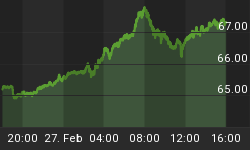The nationwide revelry surrounding our apparent economic recovery was disrupted this week by the release of lower-than-expected retail sales data. However, rather than sending a chill up the spines of those hoping for a quick end to the downturn, the numbers should be welcomed. Though this may come as a surprise to most observers, lower retail sales are precisely what our economy needs.
To return our economy to health, we must first allow market forces to ring out the excesses of the bubble years. Even government economists acknowledge that this decade's spending boom resulted from a combination of asset bubbles and the dangerous overextension of consumer credit. Yet the same economists balk at the logical need for spending to drop now that the stimuli are no longer in effect. They argue for the resumption of spending by any means, regardless of its ultimate cost. This is a recipe for momentary gain and lasting pain.
America's economic vitality will never be restored until we rebuild our savings and pay down our debts. To build back up, we must change the pattern of capital flows from the phony economy. It is a painful process, but one that will leave our economy on a stronger foundation. Unfortunately, Americans cannot accomplish these goals unless they stop shopping, live within their means, and replenish their savings. Though this may be problematic for retailers, it is beneficial to the overall economy.
But rather than accepting the market's medicine, our government is overriding its own citizens' responsible behavior. To do so, it has put borrowed money into consumers' pockets, and then conjured various incentives for them to go out and spend it. This process requires more government bureaucracy, more debt, and more regulation at a time when we can't afford any of it.
In contrast, I believe that we must restore the conditions that led to our economic preeminence. We must once again become the leader in economic freedom. This entails dismantling a significant portion of our federal and state governments, repealing countless unnecessary regulations, significantly lowering and simplifying taxes, and reinstituting sound money. If we accomplish these tasks, conditions will be ripe for a lasting recovery that solidifies our place at the top of the global economic totem pole.
However, if we neglect these reforms, and instead continue on our present course of more government and less freedom, more borrowing and less savings, more spending and less production, then our standard of living is doomed to fall. As the world cuts us off from its savings and production, we will finally be forced to live within our means. On a practical level, imagine living without easy access to the cheap and abundant goods with the "made in China" label. Imagine Walmart rolling up prices every week, while wages continue to fall. This pain would hit every American, not just retailers.
There are two ways to rebalance the American economy. The right way is to restore competitiveness through diminished government spending, deregulation, lower taxes, and higher savings. Higher savings will facilitate capital formation, and lower taxes and fewer regulations will allow that capital to improve the competitiveness of American labor. Improved productivity and capital investment will translate into higher real wages and pave the way to higher future living standards.
Alternatively, if we don't rebalance our economy on these terms, our foreign creditors will do it for us - and they may have no compunction about imposing harsh measures. This tough medicine will be delivered in the form of declining value for the dollar. This will effectively raise consumer prices and interest rates for all Americans and dramatically lower the real value of our wages. In other words, balance will be restored from abroad by forcing our living standards to match our diminished industrial capacity. If we cannot compete based on lower taxes and increased capital investment, our only alternative will be to do so based on cheap labor.
Though president Obama claims that his policies will not raise taxes on average Americans, the unfortunate truth is that the effect of his policies will be to lower wages. The choice is simple: either we shrink government and enjoy higher wages, or grow government and accept lower wages. As for me, I prefer the former. However, if we do not change course soon, we will all be stuck with the latter.
For a more in-depth analysis of our financial problems and the inherent dangers they pose for the U.S. economy and U.S. dollar, read Peter Schiff's 2007 bestseller "Crash Proof: How to Profit from the Coming Economic Collapse" and his newest release "The Little Book of Bull Moves in Bear Markets." Click here to learn more.
More importantly, don't let the great deals pass you by. Get an inside view of Peter's playbook with his new Special Report, "Peter Schiff's Five Favorite Investment Choices for the Next Five Years." Click here to dowload the report for free. You can find more free services for global investors, and learn about the Euro Pacific advantage, at www.europac.net.















